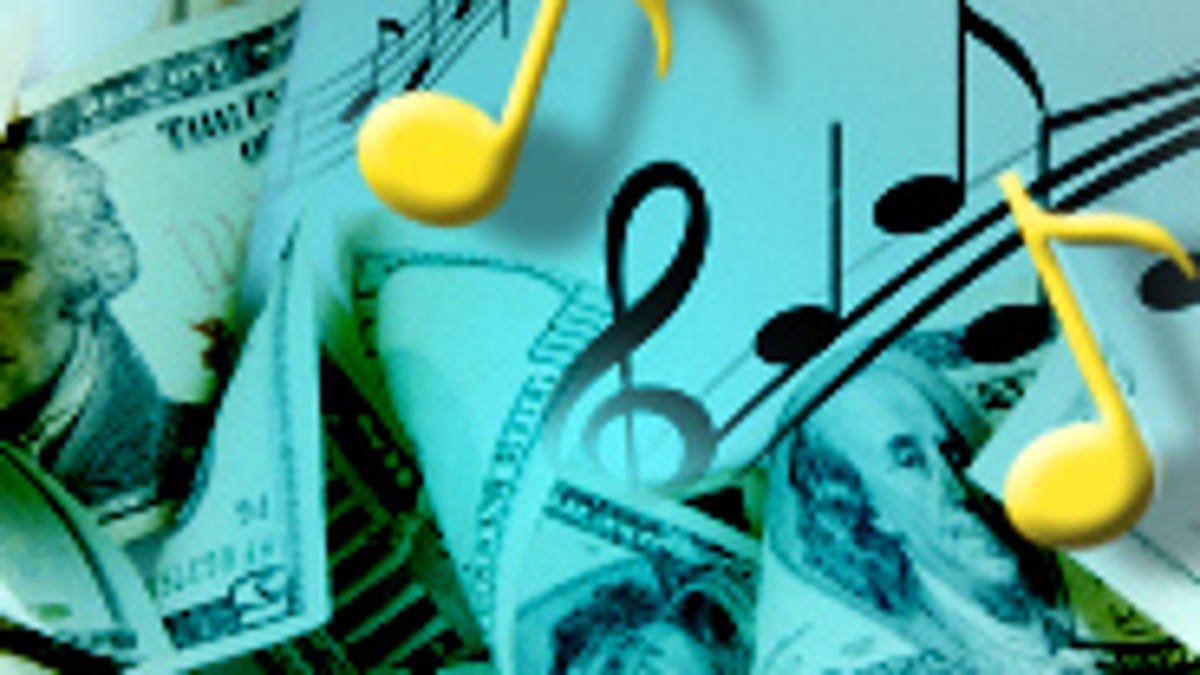Amazon, Apple and the price of music
Record labels aren't cutting deals, sources say. If downloads are cheaper on Amazon than iTunes, then they're likely a loss leader.

Ever since Amazon began selling digital music and offering lower prices than rival Apple, the suspicion by many iTunes fans is that the music industry was in cahoots with Amazon.
In the comments section of our scoop Monday on Apple's MacWorld announcement that it was doing away with copy-protection software and changing its pricing policy, many iTunes fans asserted the often repeated allegation that the four largest recording companies were giving Amazon a price break.
Not so, according to two music industry insiders with knowledge of the negotiations.
The suspicion has long been that the record labels want to help Amazon's fledgling music service compete against the Apple juggernaut. The labels have hoped that an iTunes alternative would emerge and dilute some of Apple's control over digital music sales. The reality is, say my sources, that Amazon, Wal-Mart and everybody else selling downloads is paying the same wholesale price as Apple.
"As long as a retailer pays the label's price they can sell songs for whatever they want," said one of the sources.
What this means is that Amazon, which offers many songs for 10 cents less than Apple's former standard price of 99 cents, has likely chosen to lose money on music sales, say the sources. It's generally believed that Apple's profit margin is just a few pennies per song.
Amazon's motivation is obvious. The company is battling the country's largest music retailer and the maker of the best selling music player. Amazon needs a competitive advantage.
That's going to be tougher to find now. Apple's announcement Tuesday that it will remove digital rights management from songs and offer more price flexibility, including the slashing of catalog titles or older music to 69 cents, is bad news for competitors--especially Amazon. Amazon representatives did not respond to an interview request.
I've been hard on iTunes recently for failing to provide customers with DRM-free music and over-the-air downloads. But the reasons to shop for music at any other Web store are quickly dwindling.
Amazon launched an MP3 store in September 2007 and tried to play up the fact that fans could get cheaper music at a higher quality and free of DRM?
While iTunes on Tuesday raised the price of hit songs 30 cents to ($1.29), catalog titles were reduced by 30 cents. And there are a lot more songs in the catalog category. Apple can now make the claim that iTunes is cheaper than Amazon on most music.
At iTunes plus, music buyers can get DRM-free music at 256kpbs, the same quality that Amazon offers. And Apple took the extra step of enabling people to go back and scrub DRM from their existing libraries--although they must pay a 30-cent fee per song.
Let's face it, there's little to indicate that providing DRM-free music or offering songs for 10 cents less were competitive advantages anyway.
"This whole David and Goliath story has been a bit overblown," said Russ Crupnick, NPD's senior industry analyst. "What we've seen in the year we've been tracking Amazon is that there is very little overlap between (Amazon and Apple's customers). There is very little evidence that Amazon came in and cannibalized Apple's business."
Crupnick said that this appears to mean that to compete with iTunes, a store is going to have to offer more than discounted songs.
"I don't think price has been the issue so far," Crupnick said. "The reality is that Apple and Amazon are both providing good value. Apple has a very sticky customer base. They are using the iPod and iTunes. Even people who aren't buying music from iTunes use it to manage their libraries. What we've seen is for people who want to hear the latest Akon single, there isn't going to be much resistance to buy that track at $1.29. And at the lower end, Apple can start to do more bundling and packaging.
"Let me put this way," Crupnick continued, "if a dime would have made a difference, we would have seen a larger migration to Amazon a year ago."
So is Apple destined to continue to reign supreme over digital music?
The only potential competitor I can see possibly mounting a challenge is MySpace Music. I would say that the site founded by the top music labels and News Corp. represents the last hope that social networking is fertile ground for music sales.
What MySpace has going for it against Apple is the opportunity to market music to more than 100 million unique worldwide visitors, and a reputation as a music hub. The service also offers free song streams to PCs and will sell merchandise and concert tickets. The service bills itself as a one-stop shop for everything music.
Still, digital music stores are like banks. People are unlikely to switch unless they have an overwhelming reason. I don't consider myself an Apple fanboy in any way but there's nothing compelling enough out there for me to bother switching.
Sure, I wish iTunes was better at helping me to discover new music and I wish the sound quality was better, but for everyday tasks, such as managing my library and working with my iPhone, Apple is the clear winner.

